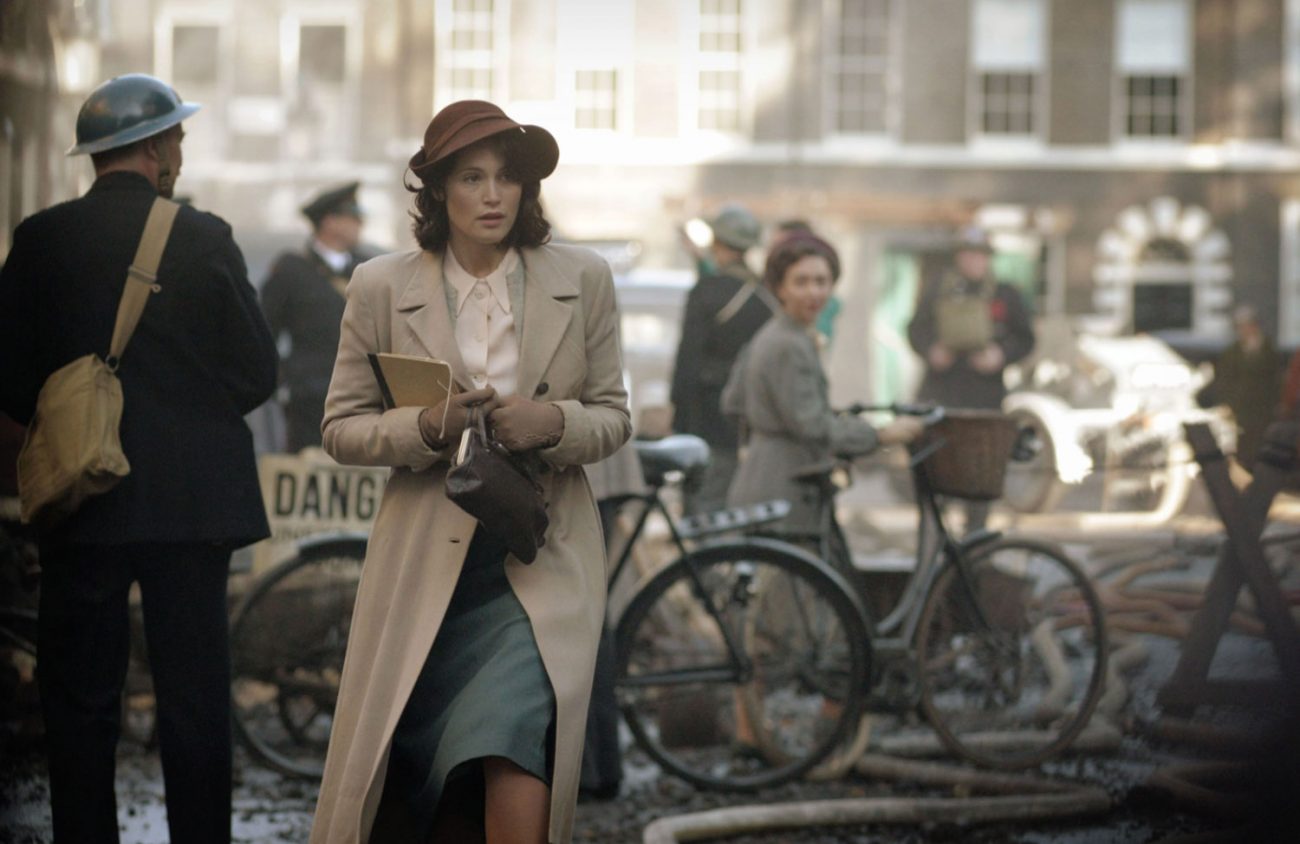Some movies make me talk, others shut me up good. After watching Lars von Trier’s Melancholia, for example, I couldn’t talk for two hours. Total silence. Couldn’t find a word.
On the other hand, director Lone Scherfig’s new movie, Their Finest, made me giddy. Walking out of the Bijou, full of fellow feeling, I impulsively chatted up the older couple on the sidewalk in front of me. “They just don’t make movies like that anymore,” I said at one point. The woman turned to me with a smile. “I know,” she said. “But they just did.”
Indeed. Based on the 2009 novel by Lissa Evans, Their Finest tells the story of Catrin Cole (Gemma Arterton), a Welsh woman hired by the British Ministry of Information to help write the screenplay to an “authentic” but optimistic film that will revitalize the war effort in 1940s London, which is getting bombed by Germany on a regular basis.
In short, Catrin is enlisted to write propaganda to boost public morale, by providing the “slop” of female dialogue.
Married to a wounded painter (Jack Huston) who can’t seem to land an exhibition, Catrin starts to work on a screenplay based, rather loosely, on a real-life story of two sisters who hijacked their father’s boat to aid in the Dunkirk evacuation. Romantic tensions ensue with her handsome bully of a co-writer Tom Buckley (Sam Claflin), and she also butts heads with aging actor Ambrose Hilliard (the wonderful Bill Nighy), who gets penned by Catrin into the script as the sisters’ drunken uncle.
The film is funny and romantic and tragic and thrilling in nearly equal measure. And yet, it is neither a typical period piece nor a feminist rescuing of prestige nor even a romantic comedy with British bite. In part, it is a film-within-a-film, as Scherfig brilliantly weaves in scenes from the final cut of The Nancy Starling, the fictional movie everyone is struggling to make to push against the Nazi onslaught.
More than anything, however, Their Finest is a celebration of movies themselves — the people who make them and the people who love them. What I meant when I said they don’t make them like this anymore is this: The film captures, with uncommon charm and a distinct lack of cynicism, an era when movies were made with naive faith in their own transformative power to move the masses.
Which is not to say that the film is uncritical and overly sentimental. Their Finest oozes smarts and a wry sense of its own artifice, and it grounds itself in the realpolitik of wartime England. But it never loses an exuberance of its own movie-ness; like the classics of the ‘40s and ‘50s (it recalls the work of British directors as diverse as Michael Powell, David Lean and Alfred Hitchcock), the film glows with the promise of big-screen transcendence, something at once innocent and forever besieged life outside the magical setting of the studio.
As they say, there’s no business like show business. With its excellent cast and intelligent writing and direction, Their Finest harkens back to a time — before everyone alive wanted his 15 minutes of fame — when show business was an insular and joyful endeavor, generated by a tight clutch of silly, talented dreamers who believed movies could change the world.
Stylized directors like Wes Anderson and the Coen Brothers consistently mine mid-century Hollywood for its twee postmodern value, but in Their Finest, the golden age of movies is recreated without a touch of irony in a spirit of generosity and humanity that gives escapism a good name. (Bijou Art Cinemas)
